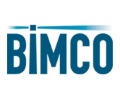 Shipping association BIMCO and other organizations are working closely with the International Maritime Organization to ensure a standard procedure for ships to use high sulfur fuel if compliant alternatives are not available at a port once the IMO sulfur cap comes into effect on January 1, 2020, a senior executive said this week.
Shipping association BIMCO and other organizations are working closely with the International Maritime Organization to ensure a standard procedure for ships to use high sulfur fuel if compliant alternatives are not available at a port once the IMO sulfur cap comes into effect on January 1, 2020, a senior executive said this week.
“The shipping industry has proposed a standard form to submit all details to enable the use of other fuels if they can’t find compliant fuels,” BIMCO’s President Designate Sadan Kaptanoglu said on the sidelines of the Marine Money conference in Singapore.
IMO’s mandatory sulfur cap for marine fuels from 2020 is 0.5% compared with 3.5% currently. At its meeting next month, IMO’s Marine Environment Protection Committee will review global preparedness to implement the new rules. Any introduction of a standard procedure to use non-compliant fuel will require an amendment to the rules.
There is increased pressure on ship-operators to buy compliant fuel during the transition period, which, coupled with the likelihood of regional non-availability of compliant fuel, raises serious concerns for safe and efficient shipping operations, according to a draft submitted by several organizations including BIMCO to the IMO.
BIMCO is the world’s largest international shipping association with around 2,100 members in over 120 countries.
“There are a few simple issues that need to be addressed including the use of non-compliant fuel in the event of a [genuine problem] for ships,” Kaptanoglu said.
This was proposed to be done in a standard format, she added. Consideration should be given to a ship’s need to clean its tanks of all remaining residual fuels prior to loading non-compatible alternative fuels in the same tank, the draft said.
The ship will have to record its efforts to obtain compliant fuels, names of bunker suppliers contacted, reasons for non-availability, sulfur content of fuel in use, any supply disruptions, its itinerary and its next destination. The idea was to have a mitigating solution till the ship moves to the next port where remedial action can be taken, industry bodies said, adding that it was not an attempt to avoid compliance. Kaptanoglu said BIMCO was in favor of a ban on carrying non-compliant fuel in ships unless they are equipped with the ability to reduce emissions such as through the installation of scrubbers.
“We don’t need long time. In a reasonable duration of a couple of months after the implementation of the new norms, everyone should be ready for the carriage ban,” she said.
Shipping industry organizations said that an explicit prohibition of not just the use but also the carrying of non-compliant marine fuels on board a ship will prevent cheating and market distortion.
“It is in the interest of all shipping companies, big and small to have a certain level of transparency and a better environment friendly management system or else more complicated regulations maybe enforced in the future,” she said. Kaptanoglu, who is also managing director of the Kaptanoglu Shipping Company, said that around 90% of the industry would opt for low sulfur fuel vis-a-vis scrubbers. Scrubbers are systems used to collect excess sulfur while burning marine fuels.
The availability of scrubbers is limited and the deadline to implement the new norms was fast approaching, she said.
LNG as an alternative fuel will certainly pick up in the medium term, in around a decade, but as of now, it needs to develop itself as a commodity and is not an immediate solution, she said.
Source: Platts


















